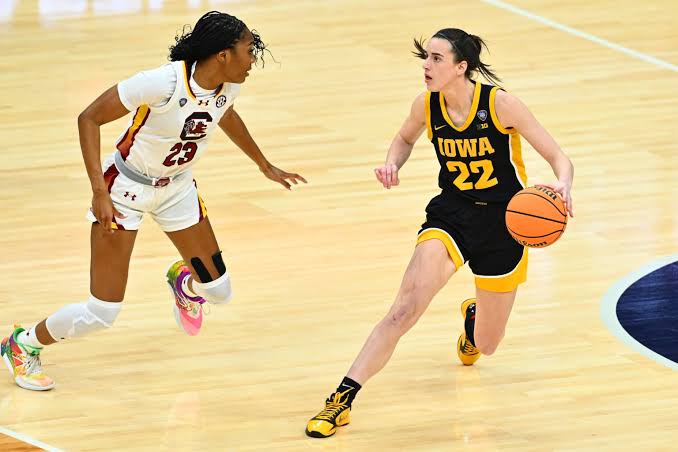
In a move that could redefine the landscape of women’s basketball, rumors are swirling that Unrivaled, the sports marketing giant, is preparing to offer a groundbreaking deal to Iowa Hawkeyes star Caitlin Clark. Comparisons are already being made to Lionel Messi’s historic $400 million-a-year contract with Inter Miami—an astronomical figure that would dwarf anything seen in women’s sports history.
But while some hail this as a game-changing moment for gender equity in sports, others see it as a troubling sign of what could go wrong when the focus shifts away from the sport itself.
The Caitlin Clark Phenomenon
Caitlin Clark has become nothing short of a basketball sensation, captivating fans across the nation with her deep shooting range, court vision, and undeniable charisma. As a top player in college basketball, Clark’s dominance on the court is undeniable. She’s earned her accolades—breaking records and turning Iowa games into must-watch events.
Yet, the reported offer from Unrivaled is seen by some as a risky and divisive move. A deal of this magnitude raises several key questions: Is women’s basketball ready for a “Messi-like” figure? And, is this offer more about corporate branding than the actual game?
A Historic Deal or a Corporate Stunt?
The potential deal, which would likely include exclusive endorsements, media appearances, and global marketing campaigns, isn’t just about basketball. Unrivaled seems intent on turning Caitlin Clark into a global brand, much like Messi has been for years. For decades, women athletes have fought for better representation and fair pay, and Clark’s offer could be the breakthrough moment.
But critics are wary. Is this offer setting a dangerous precedent? There’s concern that the focus may shift from the sport to the athlete as a commercial entity, creating an over-commercialization of women’s sports before it’s fully developed. If Unrivaled pulls off the deal, it could open the floodgates to a new era of mega-contracts and celebrity athletes, but at what cost?
Unintended Consequences for Women’s Sports
While the deal would be a massive win for Clark and her fans, it could have unintended consequences for the rest of women’s sports. Critics argue that pouring millions into one star player could further entrench financial inequities within women’s leagues. What happens to the other athletes and teams who won’t see a fraction of this investment?
On one hand, Clark’s massive deal could spark a new wave of interest in women’s sports, leading to better pay for all athletes. On the other, it could deepen the divide between a few high-profile players and the rest of the field, making it harder for smaller teams and lesser-known athletes to compete.
Gender Equity or More Corporate Exploitation?
There’s no doubt that Caitlin Clark deserves recognition, but is this move truly about gender equity in sports, or is Unrivaled simply using her to tap into a lucrative market? The fact that women’s sports have historically been underfunded and underpromoted raises the question: Why now?
Critics argue that while the deal may bring attention to Clark and her brand, it won’t necessarily address systemic issues of gender inequality in sports. Will the rest of women’s basketball see similar investment, or will this be another example of corporate exploitation, where one star athlete is used as a marketing pawn while the rest are left behind?
Conclusion: The Fine Line Between Progress and Exploitation
Caitlin Clark deserves the spotlight, and the potential “Lionel Messi–like” offer from Unrivaled could represent a new era of opportunity for women in sports. However, this moment is also fraught with controversy. While some see this as a major step toward gender equity, others fear it may lead to more harm than good by commercializing one player at the expense of the broader sport.
As the details of the deal unfold, it’s worth considering the broader implications: Is this a moment of triumph for women’s sports, or a cautionary tale of how corporate interests can undermine progress? Only time will tell.






